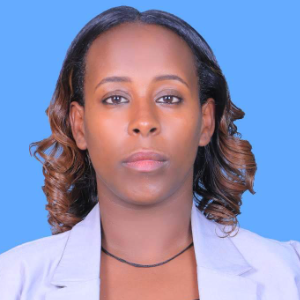Title : Prevalence, triggering factors and effects of intimate partner violence among pregnant women in Shebedino Woreda, Sidama Zone, Ethiopia
Abstract:
Background: Intimate partner violence (IPV) in pregnant women is an important public health problem. It has a significant negative impact on the health and wellness of both the mother and her fetus. Most previous studies are more focused on IPV among non-pregnant women in relatively bigger cities and better of communities; as a result, results from such studies seem to understate the problem in pregnant woman living in marginalized smaller communities. This study attempted to shed light on the impact of IPV among pregnant women in one of such communities in Southern Ethiopia, specifically in Shebedino Woreda.
Objective: To assess prevalence, contributing factors and the impact of IPV among pregnant women in Shebedino Woreda, Sidama Zone, Ethiopia.
Methods: Facility-based cross- sectional study was conducted from February 20th to April 20th, 2020, among 427 pregnant women. The study was carried out in one purposively selected primary hospital and three randomly selected health facilities. The data were encoded using Epi-data version 3.1 and analyzed by SPSS. The bi-variable and multi-variable analysis was carried out by using binary logistic regression. Significance was declared by using the p-value of <0.05 and adjusted odds ratio with 95% confidence intervals.
Result: The study shows that 41.9% pregnant women encountered at least one type of IPV during their recent pregnancy. The study indicated that the types of violences encountered by pregnant women are physical (23.4%), sexual (26%), and psychological (24.6%). Employment status [AOR= 0.16; 95%CI: (0.07, 0.39), partner’s level of education [AOR=5.35; 95%CI: (2.28, 12.5), women’s level of participation in decision making [AOR=3.69; 95%CI: ( 2.017 ,6.76), history of childhood violence [AOR=13.02; 95%CI: (5.08-33.4), desirability of the pregnancy [AOR=0.28;95%CI: (0.09, 0.87), and history of abortion [AOR=2.15; 95%CI: (1.18, 4.59) were significant factors which contribute to IPV during pregnancy. There was no significant association between attitude of women and IPV during pregnancy.
Conclusion and Recommendations: The research findings revealed that at least one in three women encounter IPV during pregnancy in Shebedino Woreda. Government and nongovernmental public health intervention should be targeted towards minimizing the prevalence and impact of IPV in such communities. Similar research and project activities should be conducted in similar rural communities to further shed light on the problem and the solution as well. Targeted efforts on education, awareness creation and cultural transformations should be encouraged.
Keywords: Intimate partner, pregnancy, Antenatal care service, Sidama Zone, Ethiopia.
Audience Take Away:
- Learn the global nature of IPV, its higher prevalence, and contributing factors in geographically and socioculturally different societies/communities.
- Encouraged to conduct similar research on the topic in different communities in their area to better understand IPV as a public health problem.
- Learn to gear public health interventions and efforts towards IPV prevention and management to make a difference vicious cycle of IPV and improve the safety of the most vulnerable segments of society.




